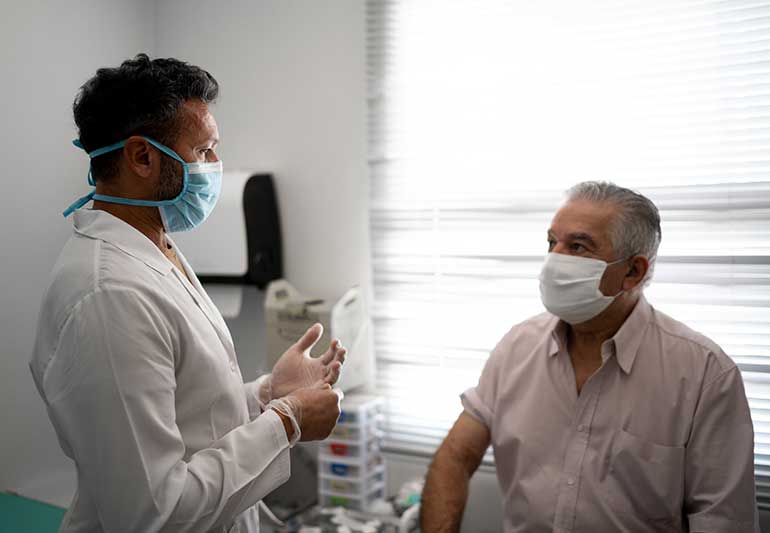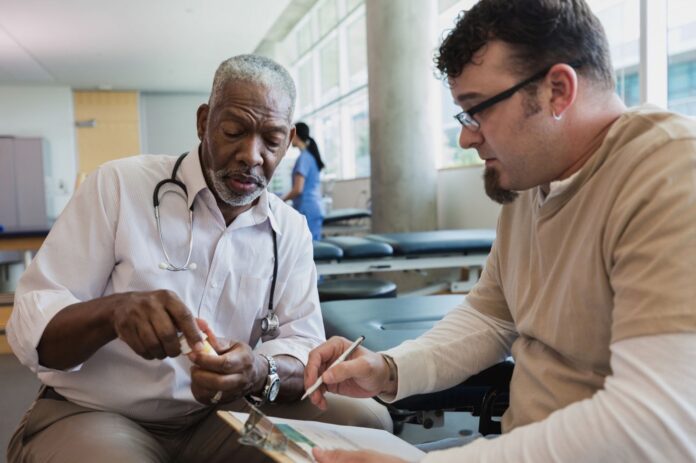
Table of Contents
As we journey through life, our bodies and health needs inevitably change. Aging is a natural process, and with it comes a shift in how we should approach our health and well-being. From the medications we take to our physical activity levels, adapting our healthcare strategies as we age is essential for maintaining a high quality of life. Understanding these changes is crucial in ensuring that we age gracefully and healthily.
In this article, we will explore six key ways our health and well-being needs evolve with age, highlighting the importance of being proactive and adaptable in our approach to healthcare.
Let’s have a look:
Medication Management Becomes Crucial

As individuals age, they often find themselves managing multiple medications, which can be daunting. The complexity of handling various prescriptions increases the risk of errors, such as missing doses or incorrect timing, which can lead to serious health complications. That’s where effective medication management becomes crucial for older adults.
Programs designed to synchronize medication schedules play a vital role in simplifying this process. They assist in organizing all of a patient’s medications so they can be refilled and taken at the same time. Moreover, med sync program not only streamlines medication management but also enhances adherence to prescribed treatment regimens, contributing to better overall health outcomes.
Effective medication management is more than a convenience; it’s a critical component of healthcare for older adults. By ensuring that medications are taken correctly and consistently, these programs help prevent adverse drug interactions, side effects, and other complications, thereby improving the quality of life for older individuals.
Increased Risk of Chronic Conditions

With age comes an increased risk of developing chronic health conditions such as heart disease, diabetes, arthritis, and others. The body’s natural aging process can lead to weakened immune systems, reduced organ function, and other changes that make it more susceptible to these illnesses. Recognizing and addressing this heightened risk is a crucial aspect of healthcare for older adults.
Regular health screenings become more important as they help in the early detection and management of such conditions. These screenings can include blood pressure checks, cholesterol level assessments, diabetes screenings, and cancer screenings, among others. Early detection often means that these conditions can be managed more effectively, reducing the risk of them becoming severe.
Preventive measures, including lifestyle changes, play a significant role in managing the risk of chronic conditions. This includes maintaining a healthy diet, regular physical activity, quitting smoking, and moderating alcohol consumption. Such proactive measures can significantly reduce the risk of chronic diseases and improve overall health and longevity.
Greater Need for Regular Physical Activity

Physical activity is crucial at any age, but as people get older, its importance escalates. Regular exercise helps combat age-related muscle loss, maintains mobility, and reduces the risk of falls and fractures. It’s also vital for managing weight, reducing the risk of chronic diseases, and promoting mental health.
For older adults, engaging in physical activity can mean incorporating moderate exercises like walking, swimming, yoga, or tai chi into their routine. These activities are less strenuous on the body but highly effective in keeping the muscles and joints active.
However, older adults may face challenges in maintaining an active lifestyle, such as physical limitations or a lack of motivation. Overcoming these challenges might involve finding low-impact exercises that are enjoyable and doable or participating in group activities for social motivation. Regular physical activity, tailored to an individual’s capabilities and interests, can significantly enhance the health and well-being of older adults, making it a vital component of aging healthily.
Nutritional Requirements Change

As we age, our body’s nutritional needs undergo significant changes. Older adults often experience a decrease in metabolic rate, which means they require fewer calories. However, the need for nutrient-rich foods becomes more critical to maintain overall health and prevent deficiencies. This shift necessitates a careful adjustment of diet to accommodate changing nutritional requirements.
Aging is often associated with a reduction in appetite and changes in the digestive system, making it challenging to get adequate nutrients. Prioritizing nutrient-dense foods becomes essential, focusing on vitamins, minerals, fiber, and protein. Incorporating a variety of fruits, green vegetables, lean proteins, whole grains, and low-fat dairy products can ensure a balanced diet. Additionally, hydration is crucial, as older adults may not feel thirsty as often, increasing the risk of dehydration.
Special attention should also be given to certain nutrients that are particularly important for older adults. These include calcium and Vitamin D for bone health, B vitamins for energy and brain function, and dietary fiber for digestive health. In some cases, dietary supplements may be necessary to meet these nutritional needs, but they should be taken under medical advice.
Mental Health and Cognitive Function
Maintaining cognitive health is crucial for older adults, as it plays a significant role in their independence and quality of life. Mental exercises, social engagement, and hobbies that stimulate the brain are vital in preserving cognitive abilities.
Mental health issues such as depression and anxiety can also become more prevalent with age. These issues might be due to various factors like loneliness, chronic health conditions, or the loss of loved ones. Addressing these mental health concerns is as important as managing physical health. Activities that promote social interaction and counseling, and, in some cases, medication, can be effective in managing these mental health issues.
Moreover, cognitive functions like memory, attention, and problem-solving skills can diminish with age. Engaging in mentally stimulating activities such as reading, puzzles, and learning new skills can help maintain cognitive function. Regular physical exercise and a healthy diet also contribute positively to mental health and cognitive abilities.
Importance of Social Connections and Community
Social connections and active engagement with the community play a crucial role in the health and well-being of older adults. A strong social network can provide emotional support, reduce stress, and promote a sense of belonging and purpose. As individuals age, maintaining these connections becomes even more vital.
Staying socially active can help combat loneliness and isolation, which are common challenges faced by older adults. It can involve participating in community activities, joining clubs or groups based on interests, volunteering, or staying in touch with family and friends. Technology can also play a role in maintaining social connections, especially for those who may have mobility issues or live far from loved ones.
Furthermore, social interactions can have a positive impact on mental health, reducing the risk of depression and anxiety. Being part of a community provides opportunities for continuous learning, sharing experiences, and enjoying companionship, all of which are essential for a fulfilling life in older age.
Conclusion
As we age, our health and well-being needs evolve, requiring us to adapt our lifestyle and healthcare strategies. From managing medications effectively and addressing the increased risk of chronic conditions to adjusting nutritional needs and maintaining physical and mental health, each aspect plays a vital role in aging healthily. Furthermore, staying socially connected and engaged in the community is essential for emotional well-being and overall quality of life. Recognizing and embracing these changes in health needs can lead to a more satisfying and enriching experience in the later years of life.


















